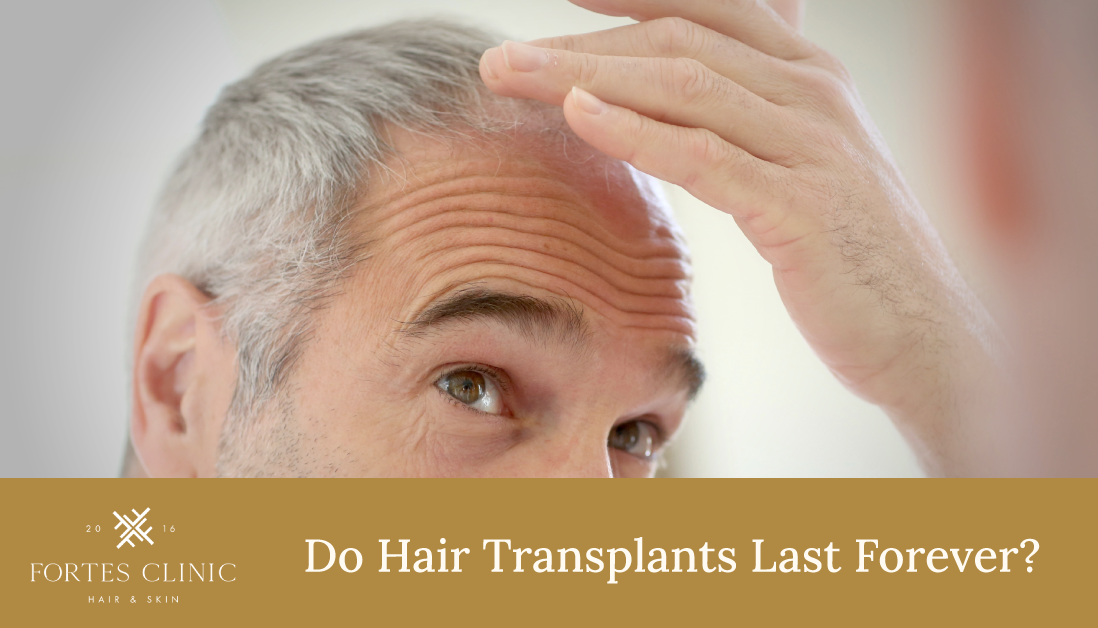Introduction
Hair loss can be a distressing experience for many, affecting self-esteem and confidence. One of the most effective solutions to combat hair loss is a hair transplant. However, a common question arises: do hair transplants last forever? In this article, we will explore the longevity of hair transplants, the factors influencing their permanence, and ways to maintain the results.
What is a Hair Transplant?
Definition and Overview
A hair transplant is a surgical procedure that involves moving hair follicles from one part of the body, typically the back or sides of the scalp, to areas experiencing hair thinning or baldness. This method aims to restore a natural-looking hairline and improve hair density.
Types of Hair Transplants
Follicular Unit Transplantation (FUT)
FUT, also known as strip surgery, involves removing a strip of scalp from the donor area. The strip is then dissected into individual follicular units and implanted into the recipient area. This method is known for its ability to transplant a large number of grafts in a single session.
Follicular Unit Extraction (FUE)
FUE involves extracting individual hair follicles directly from the donor area using a micro-punch tool. These follicles are then implanted into the recipient area. FUE is less invasive than FUT and leaves minimal scarring, making it a popular choice for many patients.
How Hair Transplants Work
Pre-procedure Preparations
Before the procedure, patients undergo a thorough consultation to assess their hair loss pattern, donor area quality, and overall health. The surgeon may advise certain medications and lifestyle adjustments to prepare for the surgery.
Surgical Process
On the day of the surgery, the patient receives local anaesthesia to numb the donor and recipient areas. The surgeon then extracts hair follicles using the chosen method (FUT or FUE) and implants them into the thinning or bald areas. The procedure can take several hours, depending on the number of grafts needed.
Post-procedure Care
After the surgery, patients receive instructions on how to care for their scalp. This includes guidelines on washing, avoiding strenuous activities, and using prescribed medications to promote healing and reduce the risk of infection.
Factors Influencing the Longevity of Hair Transplants
Individual Factors
- Genetics: Genetics play a significant role in hair loss and can also impact the longevity of a hair transplant. While the transplanted hair is resistant to the hormone responsible for hair loss (DHT), the native hair may still be susceptible.
- Age: Age can affect hair transplant results. Younger patients may continue to experience hair loss in non-transplanted areas, necessitating additional procedures over time.
- Health and Lifestyle: Overall health and lifestyle choices, such as diet, exercise, and smoking, can influence the success and longevity of a hair transplant. A healthy lifestyle promotes better healing and hair growth.
Technical Factors
- Surgeon’s Expertise: The skill and experience of the surgeon performing the hair transplant are crucial to its success. An experienced surgeon ensures optimal graft survival and natural-looking results.
- Quality of the Donor Area: The density and quality of the donor hair affect the outcome of the transplant. A good donor area provides sufficient grafts for transplantation, ensuring a fuller and more lasting result.
Do Hair Transplants Last Forever?
Initial Results and Shedding Phase
After a hair transplant, patients might experience a shedding phase where the newly transplanted hair falls out. This is a normal part of the process and typically occurs within the first few weeks post-surgery. It’s important not to panic, as this is temporary.
Long-term Results
Transplanted hair generally begins to grow back within three to four months after the shedding phase, with noticeable results often visible around six to nine months. The new hair is permanent and resistant to the hormone DHT, which causes pattern baldness. However, the longevity of the results can be influenced by factors such as the patient’s age, genetics, and ongoing hair loss in non-transplanted areas.
How to Maintain Hair Transplant Results
Proper Hair Care
Gentle washing and grooming of the transplanted hair are crucial. Use mild shampoos and avoid excessive scrubbing to protect the new follicles. Regular but gentle hair care routines promote healthy hair growth.
Avoiding Harsh Chemicals
Limit the use of harsh chemicals found in some hair products, as they can damage the hair and scalp. Opt for products designed for sensitive or post-transplant hair to ensure the longevity of your transplant.
Medications and Supplements
Certain medications, like minoxidil and finasteride, can support the health of both transplanted and native hair. These medications can slow down hair loss and promote thicker hair growth. Consult your surgeon for recommendations tailored to your needs.
Follow-up Treatments
PRP Therapy
Platelet-rich plasma (PRP) therapy involves injecting your own plasma into the scalp to stimulate hair growth and strengthen the hair follicles. It’s a popular post-transplant treatment that can enhance the longevity of your results.
Maintenance Sessions
Regular check-ups with your surgeon allow for the early detection of any issues and the opportunity for minor touch-ups if necessary. These maintenance sessions ensure your hair transplant remains in optimal condition.
Common Myths About Hair Transplants
Myth 1: Hair Transplants are a One-time Fix
While hair transplants provide long-lasting results, they are not necessarily a one-time fix. Some patients may require additional procedures, especially if they experience further hair loss in untreated areas.
Myth 2: Transplanted Hair Needs Special Care
Transplanted hair doesn’t require special care beyond good general hair care practices. Once the hair has settled and grown, you can treat it like your natural hair.
Myth 3: Hair Transplants Look Unnatural
Modern hair transplant techniques, such as FUE and FUT, have advanced significantly, providing natural-looking results. The key is to choose a skilled and experienced surgeon who can create a hairline that complements your facial features.
Do Hair Transplants Last Forever: A Summary
Hair transplants offer a promising solution for those experiencing hair loss, with the potential for long-lasting results. The procedure involves transplanting hair follicles from a donor area to the balding or thinning areas, and the success and longevity of the results depend on various factors.
Final Thoughts on the Longevity of Hair Transplants
While hair transplants do not last forever in the strictest sense, they can provide permanent results in the transplanted areas. Proper care, a healthy lifestyle, and regular follow-ups with your surgeon can help ensure your hair transplant remains effective for many years.
Commonly Asked Questions About Hair Transplants
How Long Does It Take to See Results?
Initial results can be seen within a few months, with full results typically visible around 12 months post-surgery.
Can Anyone Get a Hair Transplant?
Not everyone is a suitable candidate for a hair transplant. A thorough consultation with a qualified surgeon can determine if you are an ideal candidate based on factors like hair loss pattern and donor area quality.
Are There Alternatives to Hair Transplants?
Yes, alternatives include medications like minoxidil and finasteride, PRP therapy, and non-surgical treatments like laser therapy. Consult with a specialist to explore the best option for your hair loss situation.
This comprehensive guide should provide you with a thorough understanding of the longevity and maintenance of hair transplants, helping you make an informed decision about your hair restoration journey.
Ready to start your journey? Book your initial consultation today!



